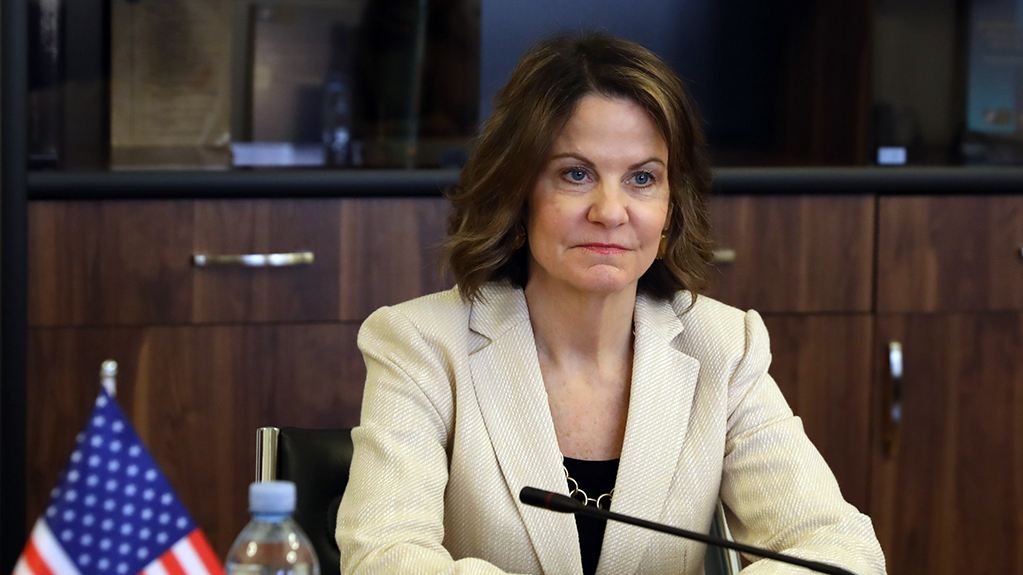“If your Western partners and friends all have said that they have serious concerns with this legislation, but your occupiers have welcomed it, you have to ask whether it is a good thing for your country,” said US Ambassador to Georgia, Robin Dunnigan.
News
The ambassador responded to the draft law on so-called foreign agents initiated by the ruling Georgian Dream, noting that it differs significantly from the Foreign Agent Registration Act (FARA) currently in force in the USA.
“I want to reiterate that this is not similar to the law [FARA] in the United States. The US welcomes the role of our civil society organizations and how they help our country. Our law, specifically requires organizations and individuals, who lobby, who are paid to lobby on behalf of foreign governments for foreign governments interests, it requires them to register. It’s a very different law,” Dunnigan said.
She stated that the US had expressed serious concerns about the bill, both publicly and in private conversations with the government. In particular, the US is concerned that the draft law will divert Georgia from the European path and will have a negative impact on the ability of local civil societies to carry out their work assisting the Georgian people on a daily basis. The ambassador noted that the USA is not the only one who is concerned:
“The EU, NATO, the European Council, the European Parliament, many, many individual countries within Europe and Parliaments, the UN, have all also expressed serious concern about this legislation. And they’ve expressed concern that this legislation will negatively impact Georgia’s path to become a member of the EU.”
Robin Dunnigan stated that the US stands by Georgia, its people, and government, and supports Georgia's European path. She also mentioned the $6 billion in aid that has been implemented through collaboration with the Georgian government and civil organizations over the last 30 years.
“Our assistance, for example, has strengthened the Georgian defense forces and strengthened and equipped the Georgian coast guard, so Georgia can defend its sovereign territory, also deter further aggression. Our assistance has built hospitals and schools, and we have trained doctors, teachers, and emergency workers. Our assistant has built independent living centers to help people with disabilities, help them live on their own, and help their families. Our assistance has given small farmers loans and small business owners loans. We have trained young Georgians with vocational skills. We’ve done things like opening an American Center, where we provide free training of English language skills, where we provide books. We’ve given 1000s of Georgians the opportunity to study and do programs in the US. This is what friends do. Friends help strengthen countries and their ability to thrive to become more economically prosperous and to defend themselves,” said the ambassador.
Georgian Dream reintroduced the draft law on so-called foreign agents, which it had rejected a year ago, in response to a large-scale public protest, and pledged to withdraw it "unconditionally, without any reservations" from the parliament. The text of the draft law remained unchanged, with only "agent of foreign influence" replaced by the term "organization carrying out the interests of a foreign power". The ruling party aims to adopt a law similar to the Russian one before the end of the spring session, despite potential harm to Georgia's European integration process.















